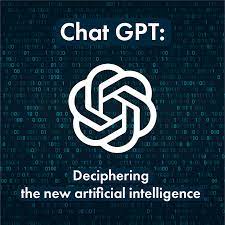In the realm of technological advancements, few innovations have captured human imagination and potential quite like Artificial Intelligence (AI). From automating mundane tasks to enabling groundbreaking scientific discoveries, AI has firmly established itself as a transformative force in today's world. This blog explores the evolution, current landscape, and potential future impact of AI, shedding light on the exciting possibilities that lie ahead.Get in touch with MobitecWorld for more news on tech
The Evolution of AI: From Fiction to Reality
AI, once a staple of science fiction, has transitioned from a distant dream to a tangible reality. The concept of machines possessing human-like intelligence dates back to ancient myths and folklore. However, it wasn't until the 20th century that AI truly began to take shape. The term "artificial intelligence" was coined in 1956, and subsequent decades witnessed remarkable progress in the field.
-
Early Breakthroughs: Early AI efforts focused on solving complex mathematical problems and playing games like chess. The development of algorithms such as the perceptron marked significant milestones.
-
AI Winter and Resurgence: The field faced setbacks during periods known as "AI winters," marked by funding cuts and disillusionment. However, breakthroughs in machine learning and neural networks reignited interest and paved the way for modern AI.
The Current Landscape of AI: Applications and Innovations
Today, AI is deeply integrated into various aspects of our lives, revolutionizing industries and shaping our daily experiences.
-
AI in Healthcare: From diagnosing diseases to drug discovery, AI is revolutionizing healthcare. Machine learning algorithms can analyze vast amounts of medical data, leading to more accurate diagnoses and personalized treatment plans.
-
Autonomous Systems: AI-powered autonomous vehicles are no longer science fiction. Companies are testing self-driving cars that have the potential to enhance road safety and revolutionize transportation.
-
Natural Language Processing (NLP): NLP enables machines to understand and generate human language. Virtual assistants like Siri and chatbots have become commonplace, streamlining customer service and information retrieval.
-
AI in Finance: Financial institutions utilize AI algorithms for fraud detection, algorithmic trading, and risk assessment, enhancing efficiency and reducing errors.
-
Art and Creativity: AI algorithms can create artworks, compose music, and even write literature. This blurs the lines between human creativity and machine-generated content.
Challenges and Ethical Considerations
While AI presents immense potential, it also brings forth a set of challenges and ethical dilemmas that society must navigate.
-
Bias and Fairness: AI systems trained on biased data can perpetuate societal inequalities. Ensuring fairness and reducing bias in AI algorithms is a critical concern.
-
Job Disruption: The automation potential of AI raises concerns about job displacement. As AI takes over routine tasks, reskilling and upskilling become vital for the workforce.
-
Privacy and Security: The widespread use of AI demands robust data privacy measures to prevent unauthorized access and misuse of personal information.
-
Existential Risks: Theoretical discussions about AI reaching superintelligence raise questions about its control and potential impact on humanity.
The Road Ahead: Envisioning the Future of AI
-
General AI vs. Narrow AI: The quest for General AI, machines that possess human-like intelligence across diverse tasks, remains a long-term goal. In the meantime, Narrow AI continues to drive innovation in specialized domains.
-
Human-Machine Collaboration: The future might see an emphasis on humans and AI working synergistically. AI could augment human capabilities, leading to unprecedented levels of productivity and creativity.
-
Ethical AI Development: As AI becomes more integrated into society, ethical considerations will play a crucial role in shaping its development and deployment.
-
Regulation and Governance: Governments and international bodies are beginning to establish frameworks for AI regulation to ensure responsible and safe use.
Conclusion
The journey of AI from science fiction to reality is a testament to human ingenuity and innovation. As AI continues to evolve and permeate various facets of our lives, we must strike a balance between harnessing its potential and addressing the challenges it poses. The future of AI holds endless possibilities, from redefining industries to shaping the way we perceive and interact with the world. By navigating the ethical, social, and technical dimensions of AI thoughtfully, we can ensure that this remarkable technology remains a force for positive change and progress.


No comments yet